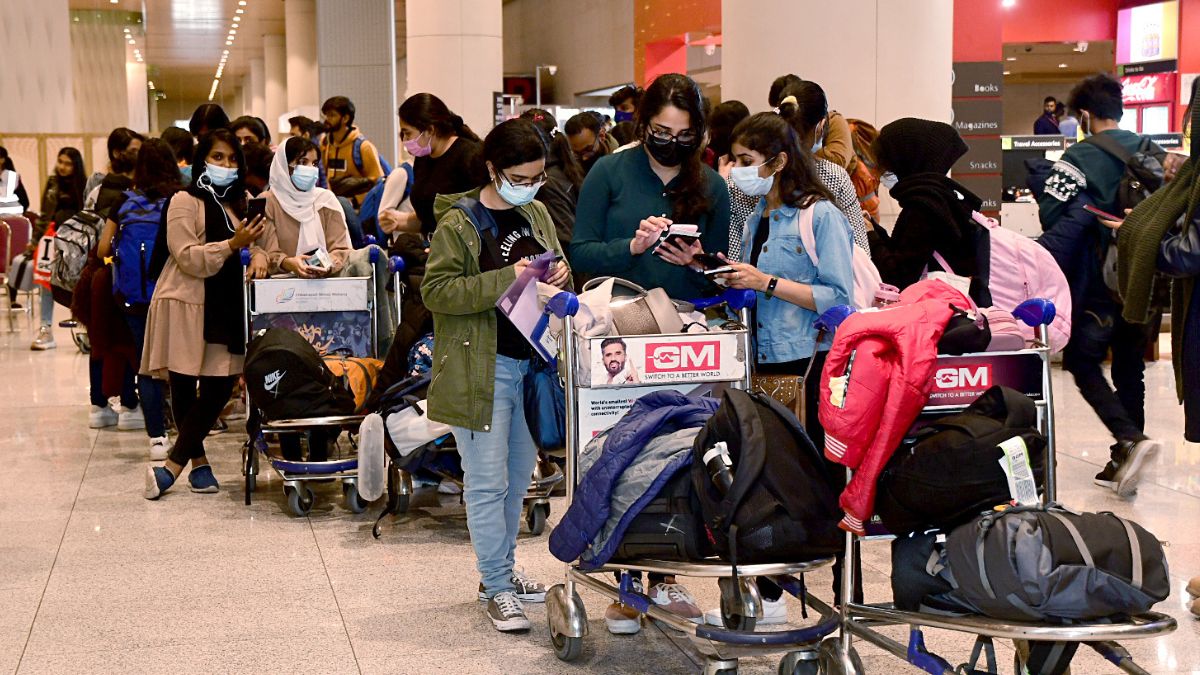Canada Cracks Down On Fraudulent Admissions: 700 Indian Students Face Deportation.
If these students hadn't requested permanent residence, the entire situation might not have even come to light. The majority of these pupils, according to the administration, have already finished their education and have even secured employment. When they filed for permanent residence, the entire deception became apparent.

Canada Cracks Down on Fraudulent Admissions: 700 Indian Students Face Deportation.
Canada is known for being one of the most welcoming countries in the world, with a highly diverse and multicultural society. However, a recent incident has shaken the trust of Canadian authorities in the Indian student community. The Canadian Border Security Agency (CBSA) has reportedly asked over 700 Indian students to return to India for producing fake admission documents to gain entry into Canada.
As these students finished their education, they filed for citizenship, which is when the investigation got started. Upon verification, it was discovered that the admission offer letters submitted by these students were forged. As a result, the Canadian government has ordered the deportation of all 700 students involved in this fraudulent activity.

A total of 700 students reportedly filed for study visas through the Jalandhar-based Education Migration Services. Brijesh Mishra was in charge of the visa service company. He used to charge students roughly 16 lahks for all of their costs in Canada, such as the institute’s admission fee, etc.
The price did not include costs for airfare or security deposits. Students who applied to study in Canada in 2018–19 with Brijesh Mishra’s assistance came under the scrutiny of Canadian authorities.
According to Chaman Singh Batth, a student who was requested to return to India, approximately 700 students sought study visas through Brijesh Mishra’s Education Migration Services in Jalandhar between 2018 and 2022.
When Batth and other students arrived in Canada to begin their studies, the visa agent contacted them to advise them that their admission to the college had been cancelled. Later, they were instructed to wait six months before applying for admission to a different college.
The claims made by these pupils reportedly failed to persuade the CBSA investigators since they were unable to establish Brijesh Mishra’s role in gathering and organising false documents.
When students sought permanent residence (PR) in Canada, the inconsistencies in the forged documents became apparent. The offer letters for Canadian universities were scrutinised by CBSA throughout the PR application. The documents were found to be false after an investigation. Significantly, these records served as the foundation for the Canadian government’s grant of visas to those Indian students.
If these students hadn’t requested permanent residence, the entire situation might not have even come to light. The majority of these pupils, according to the administration, have already finished their education and have even secured employment.
When they filed for permanent residence, the entire deception became apparent. This educational fraud is the first of its type in Canada. The enormous number of applicants to Canada could be one of the key causes of this fraud.
Visa fraud was discovered while submitting a PR application, the long con.
Over 700 students sought study visas through Education Migration Services, Jalandhar, which is run by a man by the name of Brijesh Mishra, according to Chaman Singh Batth, an Indian student in Toronto, according to indianarrative.com.
According to reports, Mishra submitted these visa applications between 2018 and 2022, charging each student between Rs 16 and Rs 20 lakh for all costs, including tuition at the prestigious university Humber College. The only things left out of the payment to this agent were the airline tickets and security deposits.
When the Indian students arrived in Toronto, Mishra called them and informed them that all of the seats in the courses that Humber College had offered them were already taken. They would now need to wait until the beginning of the following semester, which would save them time, or else they could get admission to another college.

Students were even given a refund from Mishra for their tuition at Humber College, which added to their faith in him. The unaware students followed Mishra’s advice and contacted a lesser-known college to enrol in any available 2-year diploma programmes. They started attending classes, completing their coursework, and then receiving work permits.
According to the law, the students provided the necessary paperwork to the immigration office when they were qualified for permanent resident status in Canada. And that’s when things became complicated.
“When the CBSA examined the paperwork used to award the students’ visas, they discovered phoney admission offer letters. All of the students were given deportation notices after being given a chance to have a hearing, “Batth stated.
Court actions are still the last resort.
Students claim that the agent did not personally sign the files for the visa applications. Instead, each student was required to sign his own application, giving the impression that he was a “self-applicant” who had not used an agency. As there was no proof that agent Mishra drafted and organised all of the documents, the CBSA officials are no longer accepting the “victims'” claims of innocence.
The Canadian visa and airport officials failed to issue visas and authorise entrance after verifying the legitimacy of any documents, and the CBSA is refusing to accept this.
The students can now contest deportation notices in court, where the legal process might last for three to four years and paying Canadian attorneys will still be expensive.
The Jalandhar office of the agent, where the parents of these defrauded pupils attempted to contact them, remained closed.
Education Migration Services and Brijesh Mishra
According to reports, the Punjabi city of Jalandhar’s Education Migration Services received applications for study visas from 700 students in total. Brijesh Mishra, who ran the visa service agency, charged students around 16 lakhs for all of their expenses in Canada, including admission fees to the institution, etc. Unfortunately, costs like airfare and security deposits were not included in this sum.
Students who sought to study in Canada in 2018–19 with Brijesh Mishra’s assistance are thought to have caught the attention of Canadian authorities. Upon investigation, it was discovered that Brijesh Mishra had allegedly forged admission offer letters from various Canadian universities to help students gain entry into the country.

The Consequences of Fake Admission Documents
The consequences of producing fake admission documents to gain entry into a country are severe, and the recent incident in Canada is a prime example of that.
Not only will the 700 students be deported, but they will also have a permanent stain on their academic record, which will make it difficult for them to apply for visas in the future. Moreover, the Canadian universities whose names were used in the forged documents are likely to take legal action against Brijesh Mishra and Education Migration Services.
The incident has also raised concerns about the role of visa service agencies in the application process. While these agencies can be helpful in assisting students with the visa process, it is crucial to ensure that they are legitimate and do not engage in fraudulent activities.
Conclusion
The recent incident of 700 Indian students being asked to return to India for producing fake admission documents has sent shockwaves across the Indian student community. It serves as a warning to students who may be tempted to engage in fraudulent activities to gain entry into countries like Canada.
It also highlights the importance of verifying the authenticity of admission documents and the role of visa service agencies in the application process. Canada has always been a popular destination for international students, and it is essential to maintain the integrity of the country’s education system by ensuring that only legitimate students gain entry.




